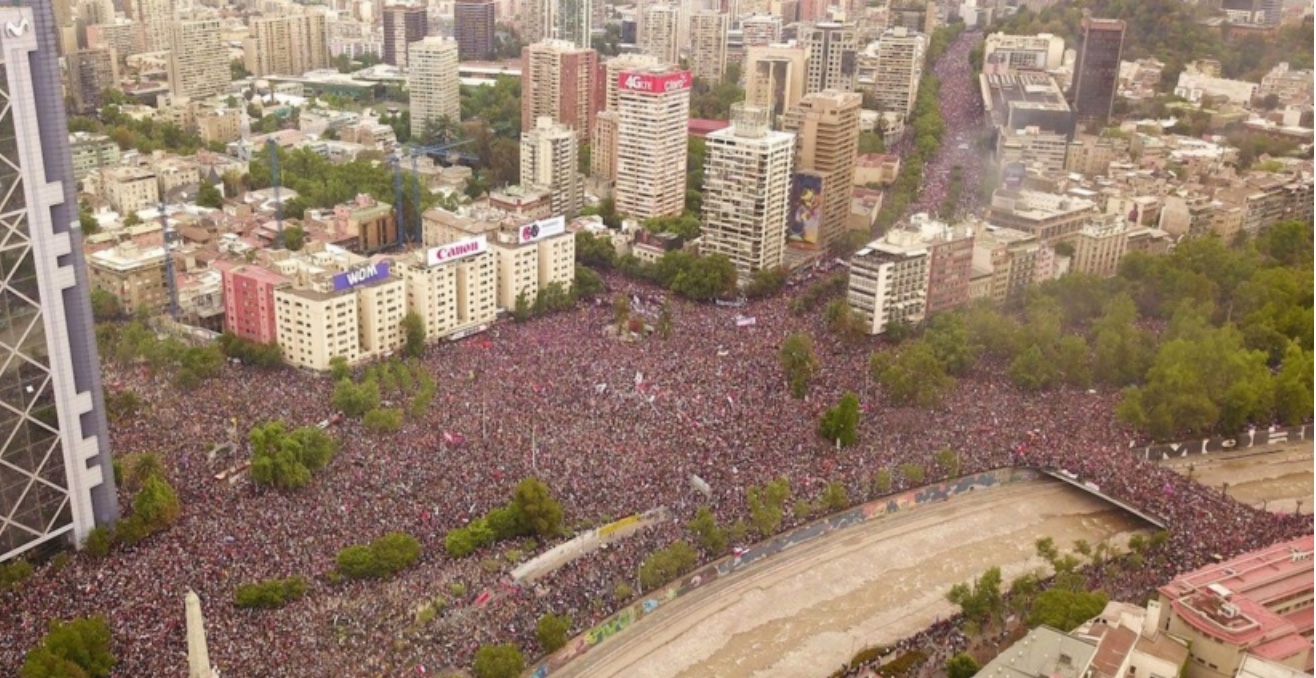An opinion editorial by Alejandro Salinas Rivera, ICJ Commissioner (Chile)
The recent social protests Chile faces have their roots in rampant inequality, social distrust on public institutions, and lack of guarantees of economic and social rights for the population.
The origins of the protests date back several years. They express three structural problems which question the foundations of the political and social model of Chilean democracy.
Those problems are continued inequality despite the country’s economic and social success, social distrust in public institutions, and insufficient State capacity in realizing economic and social rights.
The country faces frustrations that remain from the earlier dictatorship and problems that are evident during democracy due to this pervasive inequality.
Rights are not guaranteed evenly for everyone. For example, some people access health services similar to those provided in more fully developed countries, and others have access to poor quality of health services.
Education rights are also guaranteed unequally: public education is not cheap and, for example, university fees are very high for Chileans.
Also, municipalities in Chile are classified as rich and poor; the infrastructure and quality of the roads change depending on the neighbourhood. Is all this fair? No.
So why are there so many inequalities between the people of Chile?
Citizens have stopped believing and respecting that public institutions will help them guarantee their rights, and hopelessness has permeated the souls of many Chileans.
Current social protests: what now?
There have been numerous protests in recent days. The immediate trigger was the Chilean government’s announcement of rising the metro prices in Santiago on 6 October, but they are related to the profound inequity and the institutional distrust the country faces.
After 6 October, some people, mainly students, began a mass action involving the evading paying metro fares in Santiago, and because this practice continued, police forces (Carabineros) were sent to stop it.
The protests expanded beyond these actions and on the night of the 18 October several protests arose in different cities.
The initial response of President Sebastián Piñera was to decree a state of emergency, and a curfew in many municipalities and to deploy military forces into some of the streets.
Protesters increased and were expanded to other regions of the country.
There were serious allegations regarding excessive use of force by police forces and possible arbitrary detentions committed by them, which requires proper and effective investigation and, where the evidence warrants, prosecution according to international standards.
While most of the protests have been peaceful, some protesters have committed violent acts. This does not delegitimate the acts of all protesters, but it is necessary that any such violence be condemned.
After more than 13 days of continuous protests, the government has not been able to section the conditions to fulfil a political and social pact that includes other political forces, and the opposition has also not been flexible enough to bring positions closer.
Also, civil society has been lacking in proposal to address the crisis.
There has to be a political solution to address the social grievances that underlie the protests. Chilean politicians need to truly acknowledge this social discontent and they need to rise to the challenge despite their political differences.
They need to converge towards a social and political arrangement that answers, urgently, the social demands regarding equity, justice, solidarity and trustworthy institutions.
Furthermore, Chilean politicians and public institutions must ensure and guarantee economic and social rights of the population, by adopting the legal reforms needed to that end and by providing public policies that allow the country to overcome inequity.

